Hey there! So, winter's finally over, and now we're heading straight into hay fever season. Ugh, right? With all the warmth, humidity, and wind, it's super important to keep our living spaces free of irritants, allergens, pollen, and dust to maintain our wellbeing.
Nowadays, our homes and offices are sealed up tight, thanks to air conditioning and heating systems, not to mention our efforts to save energy. While that's great for keeping us comfy and reducing energy consumption, it also means that all those pesky irritants get trapped inside. That's where air purifiers and air filters come in!
So, What's an Air Purifier Anyway?
Nowadays, our homes and offices are sealed up tight, thanks to air conditioning and heating systems, not to mention our efforts to save energy. While that's great for keeping us comfy and reducing energy consumption, it also means that all those pesky irritants get trapped inside. That's where air purifiers and air filters come in!
And What About Air Filters?
An air filter is a device designed to remove solid airborne particles that could be harmful if we breathe them in. We're talking about dust, pollen, mold, fibers, bacteria, viruses, and other microscopic baddies. Air filters are especially important in places with lots of air pollution, like buildings, public transit, public spaces, and industrial areas.
Air Filter vs. Air Purifier: What's the Difference?
Some folks use the term "air purifier" as a catch-all for any device that gets rid of airborne nasties. But really, an air filter is like the engine that keeps an air purifier running. The best air purifiers use three or four different types of air filters to create super effective air purification systems.
Most Common Types of Air Filters
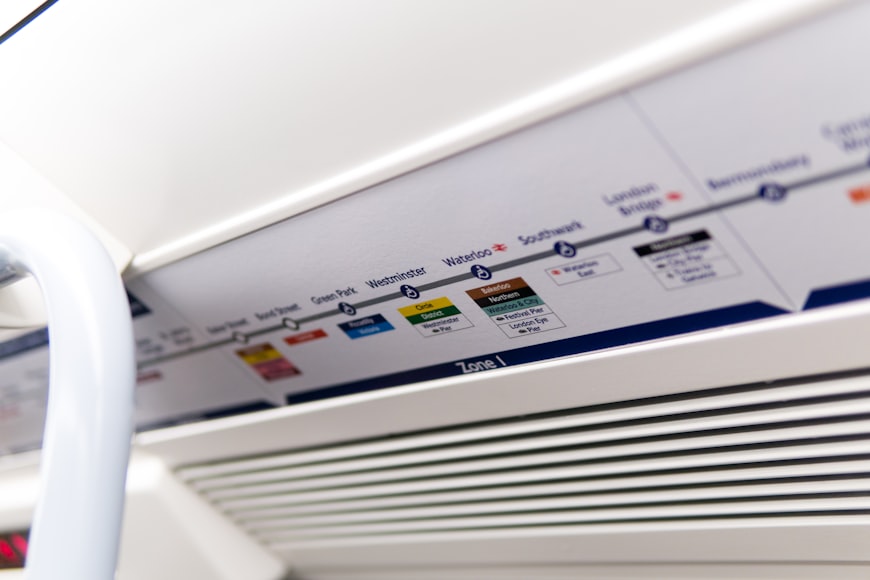
The main difference between various air filters is their ability to remove different kinds of airborne contaminants from the air in your home. This depends on the composition and arrangement of the materials used. For example, a densely woven and layered material will filter better than a thinner one. So, to choose the best filter type for your residential or commercial space, it's essential to understand the capabilities of the various filter materials.
There are seven primary types of air filters in the industry, each with its own set of advantages and disadvantages. Here's a list of the different types of air filters along with their MERV ratings. Just a reminder, MERV stands for Minimum Efficiency Reporting Value.
Spun Glass or Fiberglass Air Filters
These filters, also known as flat-paneled filters, are made of strands of glass spun together and reinforced by a metal grating. They're widely used because they're affordable, but they don't do much to improve the air quality inside your home. Based on their MERV rating, they can only filter about 20% of particles ranging in size from 3 to 10 microns. In other words, fiberglass air filters are suitable for those looking to keep common debris like dust or lint out of their homes.
Pleated Filters
Pleated filters are made from a fabric material that could be either polyester or cotton. The fabric is folded multiple times to maximize the filter's surface area (filters with more pleats are more effective). These filters are a bit more expensive than fiberglass filters, but their MERV rating indicates that they're better at combating pollutants. They can remove even tiny airborne contaminants, such as pollen, pet dander, and mold spores.
HEPA Filters
HEPA filters, which stands for high-efficiency particle air filters, are the most effective. They can remove up to 99.97% of airborne pollutants and allergens in your home, including dust, viruses, mold, pet dander, pollen, and smoke particles. People with allergies or other respiratory issues will likely benefit from their high level of effectiveness.
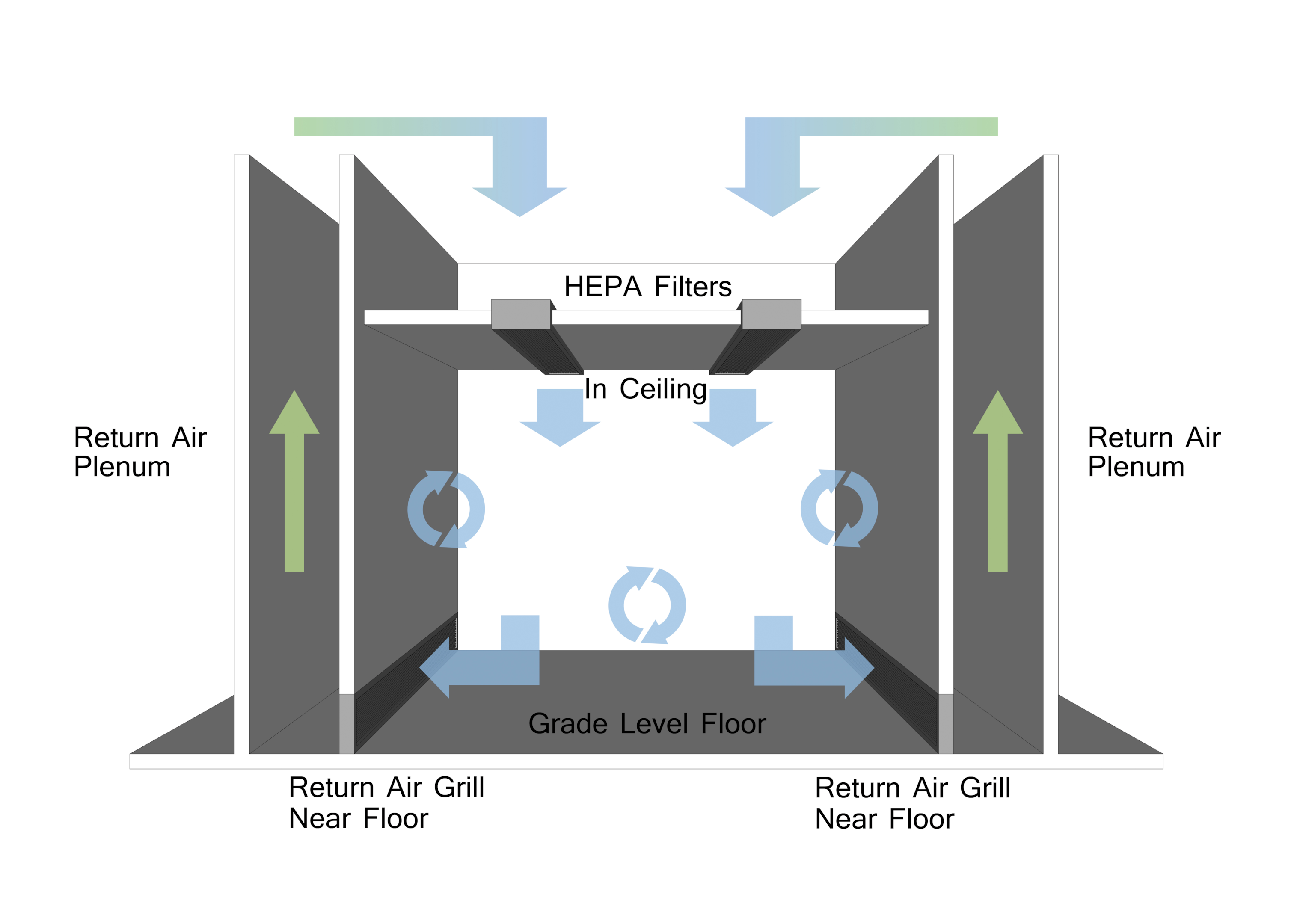
UV Light Filters
These filters have ultraviolet (UV) light embedded inside them, which emits germicidal radiation that disinfects the air as it passes through the system. UV light filters are excellent for cleaning the air in spaces with potentially harmful bacteria like mold spores. Combining a HEPA filter with the power of UV light in an air purifier can be a powerful addition to your home or office.
Electrostatic Filters
These filters combine cotton and paper fibers, which generate static electricity. The static then acts like a magnet, attracting contaminants to the filter screen where they're captured. Electrostatic filters are highly recommended for people with allergies, as they prevent allergens from spreading throughout the house. They often use carbon filtration to achieve higher efficiency levels and are available in both washable and disposable varieties.
Guide to Buying Air Filters Online in 2023
With more people working from home than ever before, the demand for clean, filtered air has shot up. Air filters can remove most airborne pollutants, and some air purifiers even use filters that can catch particles carrying the COVID-19 coronavirus. As a result, there's now a vast array of air filters and purifiers on the market. But how can you tell them apart and choose the right one for your needs?
In this article, we'll cover everything you need to know to make an informed decision when purchasing an air filter, including which models will help you breathe easier and which are suitable for your room size. Whether you're on a budget or have specific building requirements, you'll be able to find the perfect air filter for your commercial or residential space. Ready to dive in? Let's go!
Quick Tips for First-Time Buyers of Air Filters

-
Decide where you want to set up your air filter.
-
Look for an air filter that effectively filters out contaminants.
-
Calculate the costs of operation, maintenance, and power consumption.
-
Check out the CADR ratings, which show how quickly it can clean the air.
-
Check the product specifications for the noise levels, usually given in decibels.
-
Ensure your device has a HEPA filter—the gold standard for indoor air purifiers.
Benefits of Using Air Filters in a Commercial or Residential Space
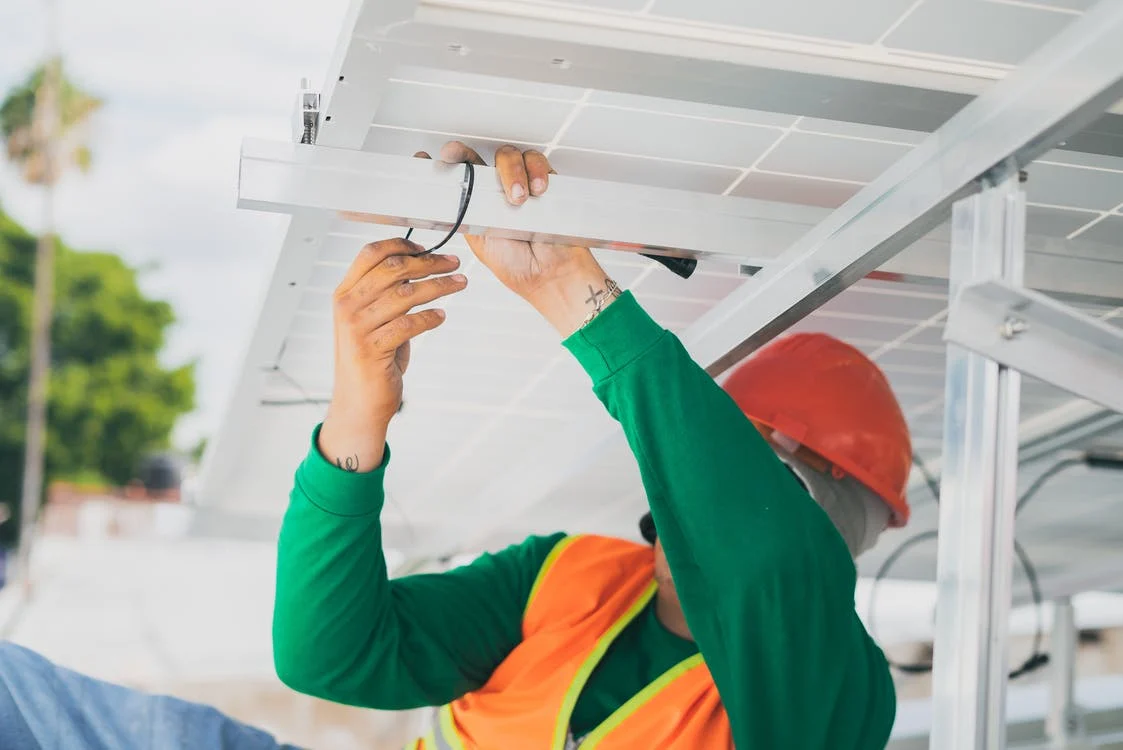
Air filters come in various shapes and sizes, and while they all aim to achieve the same general goal, each model has its standout feature. Some are designed for residential homes, while others excel in commercial spaces. So, who can benefit the most from using an air purifier? The answer is pretty much everyone! Choosing a device with the right air filters offers numerous advantages and does much more than just make the air cleaner. Let's explore.
-
They may lower the risk of airborne diseases.
-
They may be able to filter potentially harmful substances.
-
They have the potential to alleviate asthma symptoms.
-
They reduce the number of allergens in the air.
-
They can help with dust, allergens, bacteria, viruses, and pet dander.
-
They are effective in removing mold spores from the surrounding air.
Types of Technology Used in Air Purifiers – Overview
HEPA Technology: Every great purifier relies on HEPA technology. It filters particles as fine as 0.3 microns (Fun fact: human eyes can only see air particles larger than 10 microns!).
Active Carbon Technology: Often combined with HEPA, these filters are lined with carbon, a highly absorbent material that effectively traps air pollutants and harmful gases.
UV Light Technology: Instead of removing airborne particles like other technologies, a UV-based air filter targets germs and other microorganisms in the air.
Ionized Technology: Ionized technology is quite rare and is generally used to clean the air by magnetically attracting pollutants and causing them to drop to a solid surface.
HEPA Technology: The Gold Standard for Air Purifiers
Let's talk about HEPA technology. The term "HEPA" stands for High-Efficiency Particulate Air, and it's been the industry standard for effective air purifiers for years. A typical HEPA filter can remove at least 99.97% of particles larger than 0.3 microns (Fun fact: our eyes can only see particles that are at least 10 microns in size!).
Thanks to its efficiency, HEPA filters are great at capturing small airborne particles like germs and viruses, as well as Volatile Organic Compounds (VOCs) found in things like adhesives, cleaning chemicals, and paints. These filters are made using super thin fibers that zigzag back and forth, creating a unique fiber arrangement that boosts air filtering effectiveness while also providing a large surface area for air to flow through.
The effectiveness of a filter is directly related to how many particles it captures and the volume of air it processes. With a 99.97% efficiency, only three particles out of 10,000 can escape capture. However, HEPA filters aren't great at removing odors from the air, even though they're excellent at capturing airborne particles. That's why most genuine HEPA filters include some odor-removing technology based on activated carbon.
Active Carbon Technology: A Breath of Fresh Air
Activated carbon technology has been around for over a century. It was initially used to purify water, but its potential for cleaning the air was discovered when it was incorporated into gas masks during World War II. Filters made of activated carbon contain millions of tiny pores and have fantastic chemical bonding properties. These features make them highly effective at removing pollutants like odors, gases, smoke, and chemical emissions.
Air purifiers using activated carbon technology can be especially helpful for people with Multiple Chemical Sensitivity (MCS), a condition that triggers allergy-like reactions when exposed to certain chemicals. These purifiers can filter out formaldehyde, fragrances, or cleaning chemicals that may be present in wood paneling, upholstered furniture, or carpeting, making the air easier to breathe. Individuals with asthma may also benefit significantly from this technology.
While purifiers with carbon filters excel at eliminating airborne toxins, they're not particularly effective at removing dust and allergens. Additionally, they're not great at capturing air particles from far away, which reduces their effectiveness in larger spaces like commercial or industrial establishments.
UV Light Technology: Zapping Away Germs
UV technology, also known as ultraviolet germicidal irradiation (UVGI), is fantastic at eliminating viruses and bacteria. These purifiers come equipped with a UV light that destroys the cellular or genetic makeup of germs as they pass through the device. Since UV technology isn't great at removing air particles, it's often combined with other filtration methods.
Many businesses start by removing airborne contaminants with a HEPA or carbon-activated filter and then use ultraviolet light as the third and final step. The effectiveness of UV light filtering depends on the light's wattage and the length of exposure. This means that the longer the microorganisms are exposed to UV light, the more likely they are to be killed.
Some UVGI purifiers also convert water and oxygen molecules into hydroxyl and ozone while cleaning the air. These active molecules then mix with air pollutants and transform them into less harmful substances like carbon dioxide and water.
Ionized Technology: Attracting the Good, Repelling the Bad
Ions are particles that have either a positive or negative charge, depending on whether they've gained or lost an electron. Ionizers and other purifiers that use negative ions work by magnetically attracting dust and other airborne particles (which are positively charged).
While it may sound advanced, the air purifying capabilities of this technology aren't as effective as other methods. Because of this, we recommend combining ionized technology with other filtration systems by using an air purifier that has multiple air filters and stages. This way, you'll get the best of all worlds when it comes to cleaning your air.
Top Air Filters for Home and Business: Breathe Easy
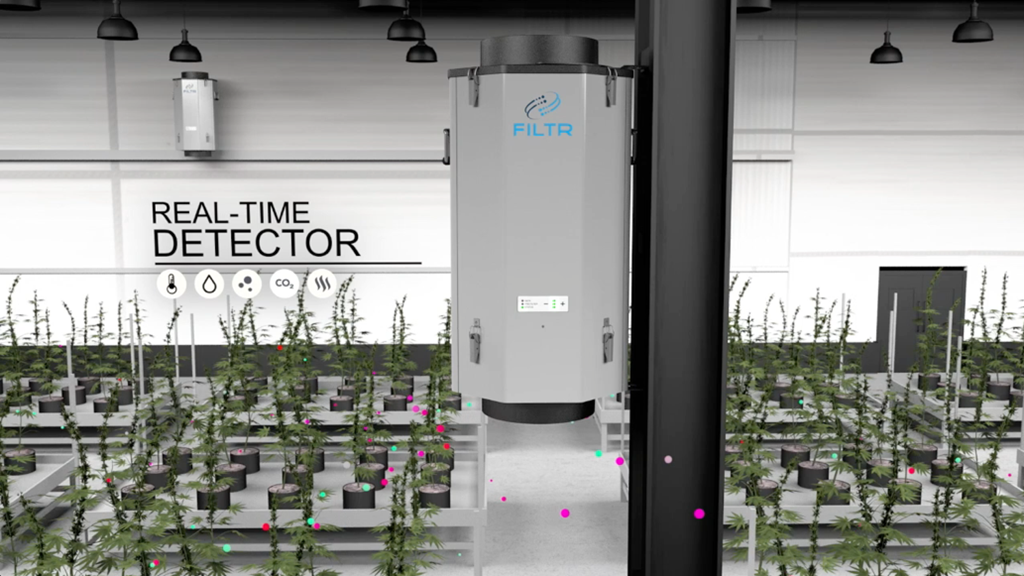
The right air filter can make a huge difference in your quality of life by removing allergens from the air and protecting against smoke from various sources. To find the perfect air filter for your needs, look for one that can effectively clean the air in your desired space, like your home. We recommend choosing an air purifier that's portable, quiet, and uses HEPA or activated carbon air filters.
With the ongoing global COVID-19 situation, improving air quality has never been more critical. As a business owner, it's essential to prioritize the health and safety of your employees in the workplace. One way to tackle potential health issues is by ensuring optimal air quality wherever your team works. In cases like these, an air filter designed to handle larger spaces is your best bet—and that's where HEPA air filters come in handy.
Frequently Asked Questions About Air Filters
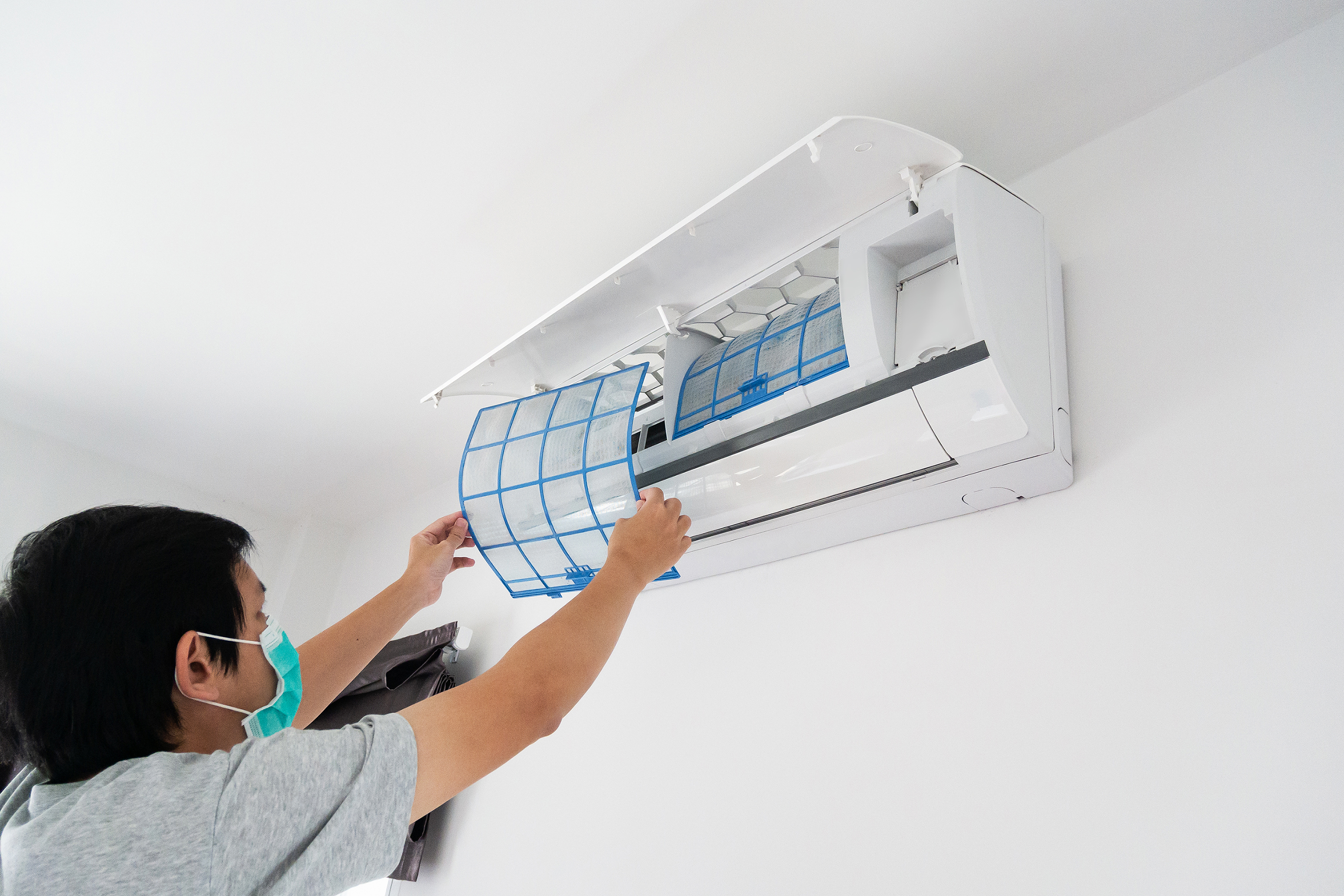
Whether you're looking to apply an air filter to a commercial or residential space, finding an air purifier that can use the air filters you need is always a first step. If you're still scratching your head, wondering which to choose, feel free to give us a call and we will gladly point you in the right direction. If you still have questions about air filtration, check out some of the answers below.
What is Air Filtration?
Air filtration involves removing solid particles, like dust mites, pollen, mold, and germs, from the air using a particulate air filtration device. These filters can be made from fibrous or porous materials. Some filters also contain an adsorbent or catalyst, like charcoal, to eliminate odors and gaseous contaminants such as ozone or volatile organic compounds. There are plenty of efficient air filtration options on the market to help you breathe easier.
Do Purifiers Remove Odors?
Yes, air purifiers can help eliminate not only lingering food smells but also everyday odors from your living spaces. They do this by filtering and removing particles that might be the source of unpleasant odors. However, according to the Environmental Protection Agency (EPA), no air cleaner or filter can remove all unpleasant smells completely.
Are There Side Effects to an Air Purifier?
Generally, air purifiers don't have any harmful side effects. However, it's essential to choose a reliable electrical device that promises to have a positive impact on your commercial or residential space. Also, if you're sensitive to airborne irritants like ozone or chemicals, it's crucial to use your air purifier responsibly. This means not waiting too long to replace or clean your air filter.
How Much Does it Cost to Operate an Air Filter?
The cost of operating an air filter depends on the energy efficiency of the device, though power consumption is usually a secondary factor. Keep in mind that air purifiers require replacement filters from time to time. A high-quality HEPA filter, for example, may need to be replaced every 3 to 5 years. On average, using a purifier daily could cost between $0.02 and $0.32. In standby mode, the annual operating cost ranges from 0 cents to 0.86 cents—quite a reasonable expense considering the potential health benefits!
What is Minimum Efficiency Reporting Value?
MERV stands for Minimum Efficiency Reporting Value. It is a measurement scale that measures a filter's capacity to remove bigger particles with a diameter of between 0.3 and 10 microns (m). The rating was obtained from a test procedure designed by the American Society of Heating, Refrigerating, and Air Conditioning Engineers (ASHRAE) in 1987. The grade of minimum efficiency reporting value is determined by subjecting a controlled testing environment to introducing particles ranging in size from 1 to 12. To calculate the minimum efficiency reporting value, a laser particle counter takes readings of the air both before it enters the test filter and after it exits the filter.
What to Consider Before Buying a New Air Filter
When choosing the right air filter, there are several factors to consider. Here are some insights to help you make an informed decision:
-
Measure the square footage of the room you want to purify to pick the right filter size.
-
If you're looking for an air filter to help with allergies, make sure it's effective at removing allergens.
-
Check for the best air filter efficiency and MERV rating.
-
Consider the filter's efficiency and power consumption, as this will affect your energy bills.
-
Plan where you'll place the return vents for the impure air to filter your room.
What is a Furnace Filter?
Furnace filters, often referred to as AC filters, are essential components that keep the air clean while using your air conditioning unit. They also help extend the lifespan of your heating and cooling system by protecting the blower fan from dust mites, dirt, hair, debris, and other pollutants that get sucked in through the return duct. By using a furnace filter, you can also improve the indoor air quality (IAQ) in your home, which may benefit your respiratory health.
What Are Replacement Filters?
A replacement filter is a filter element that can be purchased separately. When the filter element in your current filter becomes worn out or clogged over time, you'll need a new one. That's when a replacement filter comes in handy, allowing you to maintain your air purifier or HVAC system without replacing the entire unit.
Finding the Perfect Air Filter for You
With so many air purifiers and unique air filter technologies on the market, it's important to remember that not all filters are created equal. Different filters clean the air using various methods. To start your search for the perfect air filter, pay close attention to the minimum efficiency reporting value (MERV). This will give you an idea of how well the air filter will meet your specific needs. Once you've found the right air filter, look for a suitable air purifier that incorporates that technology.
And there you have it—our complete guide to buying air filters online. Now we'd love to hear from you! If you have any questions or think we missed something, don't hesitate to leave a comment below. If you enjoyed reading this article, why not share it with someone who could benefit from better air quality in their life?
Are you interested in improving the air quality in your home or office? Give us a call, and our experts will be more than happy to guide you in the right direction!Financing Options for Air Filters
When purchasing air filters, consider providers like Airpuria that offer financing options to make your purchase more affordable. Airpuria provides financing for all customers with rates as low as 0% for up to 18 months, as well as business financing with flexible terms and competitive rates.
-
We offer financing options for all individuals, with 0% interest rates for up to 18 months.
-
Business owners can also apply for special financing programs tailored to their needs.
Links:
-
financing for individuals: https://www.7figures.app/Airpuria
-
financing for businesses: https://reliantcapitalgrp.com/airpuria

